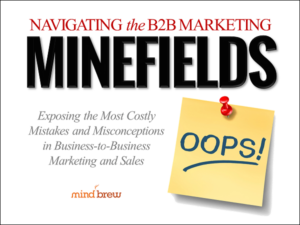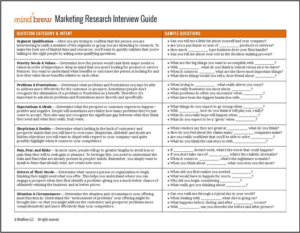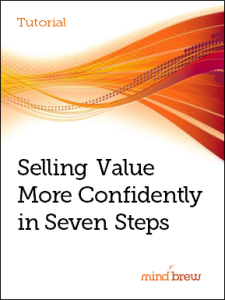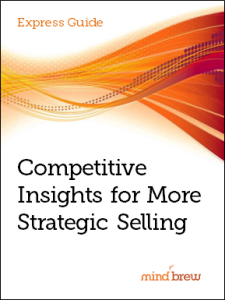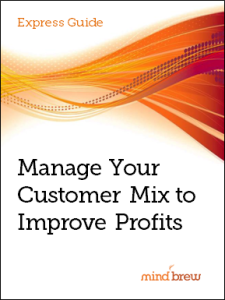On the Prairie Home Companion radio show, host Garrison Keillor always describe his fictional hometown Lake Wobegon as the place “where all the women are strong, all the men are good looking, and all the children are above average.” The joke, of course, is that all the children can’t possibly be above average.
It may be funny on the radio, but it’s less amusing when we run into a similar phenomenon among B2B marketers. Many, many of them will tell you that they are in an “extremely unique” market. Maybe they have a very small set of potential customers. Maybe their products are very complicated and expensive. Maybe the buying cycles are very long. Or maybe all of the above are true. But they almost all believe that their situations are among the most unique that have ever existed.
Some B2B companies will resist hiring outside help, like agencies, consultants or freelancers, because they believe that their markets are so one-of-a-kind that no outsider could possibly understand them. They may even avoid reading marketing publications, attending seminars and generally increasing their knowledge because they believe the subject matter just doesn’t apply to them.
We hate to be the ones to break it to you, but you’re really not that special.
The things you should be doing to market your firm are probably some of the very same things that companies in completely different industries with completely different products need to be doing.
Now don’t misunderstand us—every firm and every market truly is unique. No two situations are ever exactly alike. In fact, the process of creating a marketing strategy involves figuring out what is unique about your company and your customer base and then crafting a strategy that capitalizes on these differentiators.
Every organization needs a different marketing strategy, but the process of creating that strategy is much the same no matter what you sell or what industry you are in. All B2B marketers need to be doing solid research, to be tracking the most appropriate metrics, to be making decisions based on numbers rather than gut instinct and to be choosing tactics based on whether or not they serve the strategy. These are universal truths that don’t really change much, no matter how unusual your market is.
We highly, highly recommend that you learn from people outside your company whenever you have the opportunity—whether that’s through networking with other B2B marketers, by hiring third-party consultants or agencies, or just by watching DemandBrew webinars. Of course, this is a little self-serving on our part, but the truth is that if you never hear the stories of people outside your company, you’ll have to learn everything the hard way—by making a lot of mistakes on your own.
No matter how unique your market is or how long you have been in marketing, there are still things you can learn from the experiences of others. They can tell you what’s worked for them—and more importantly, what to avoid.
We’ve put together a webinar called Navigating the B2B Minefields that goes over some of these “things to avoid.” Your situation may be “extremely unique,” but we can almost guarantee that you’ve seen some other people—or maybe even yourself—fall into some of these traps.
Not every marketer can be “above average,” but learning from others almost always helps us improve.

